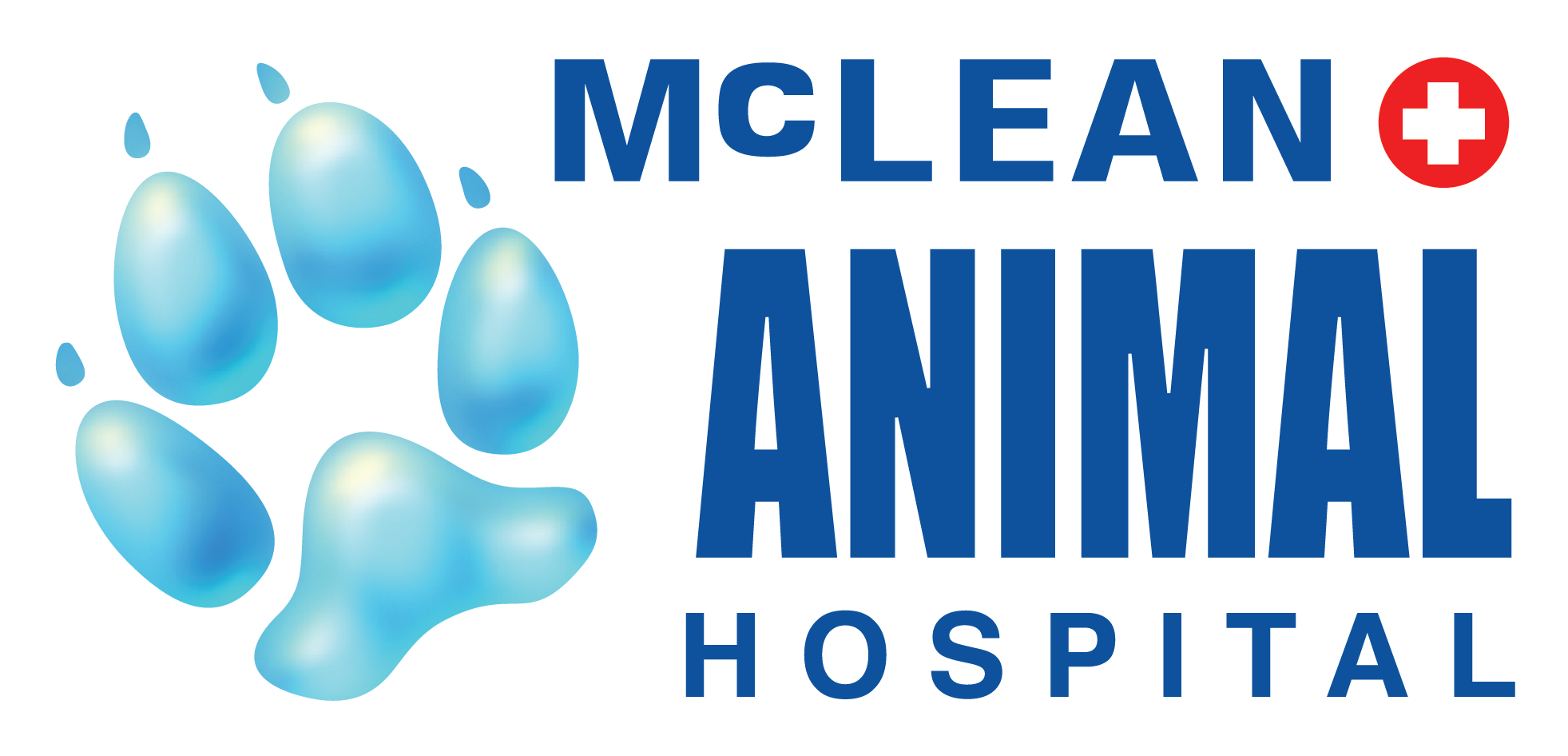Spring is finally here, and with the warmer temperatures and sunny days comes many parasites, both external and internal, that will pose a risk to both cats and dogs alike. Luckily at McLean’s, we have an informed team and effective yet exceptionally safe products to keep your loved pets safe.
HEARTWORM
The parasite you may hear the most about is heartworm. These grow up to be just like they sound – worms living in your dog’s (or cat’s) heart. Yikes and gross! It should not be a surprise to hear that these pose a serious risk to life, and treatment once an adult infection is present is both complex and very expensive. Prevention really couldn’t be easier though. The disease is spread by mosquitoes, and a simple once monthly medication given either topically or orally from June 1st to November 1st is all that is needed to prevent infection.
FLEAS
Of all the parasites out there, we probably see fleas the most frequently, and probably more-so on cats than dogs. The height of “flea season” tends to be in the spring and summer, and any pet that goes outdoors (or even on decks or balconies) is at risk. Beyond being an itchy pest, fleas can cause a severe allergic response and lead to skin infections. Severe infections can even cause anemia from the parasites taking their blood meals from your pet! Thankfully, as with heartworm, prevention is identical and simple, with once monthly medication throughout the spring, summer and fall seasons (six months).
TICKS
We are seeing more and more ticks with each year here at McLean’s, and they’re probably the ones that disgust and frighten concerned pet owners the most. As many people know, certain species of ticks can cause Lyme disease, which can become a lifelong issue with your dog, with a small subset of infected dogs developing life-threatening kidney disease. It should be noted that Lyme disease infection is usually even more serious with humans, so protecting yourself is worth remembering as well. There is no single 100% way to avoid tick bites and the potential for Lyme disease, however using a number of strategies and products can make this risk exceedingly lower. Our Scarborough veterinary medical team look forward to discussing these with you.
INTESTINAL WORMS (ROUNDWORMS, HOOKWORMS, TAPEWORMS)
These are parasites we rarely actually see, but make no mistake, they are all around us. They’ve even been shown to be in indoor potting soil! Such worms can cause diarrhea, vomiting, dehydration, and weight loss in dogs and cats, particularly puppies and kittens. Some of them can be transmitted to people as well, potentially causing more serious issues. The products used for the heartworm, fleas, and ticks above also work to rid your pet of some of these infections, however regular stool exams are important as well to ensure your pet’s optimal health.
EAR MITES AND SARCOPTIC MANGE MITES (SCABIES)
These pests can cause some serious itchiness in your pets’ ears and on their skin, and can lead to secondary infections, putting a significant dampener on your poor pets’ summer. Sarcoptes can also be transmitted to people, providing yet another reason to avoid this parasite. Fortunately, these are both prevented with the same product mentioned above.
Parasites are both a gross annoyance and threat to life, and we believe at McLean’s that avoidance and prevention are the very best ways to keep our dogs and cats living happy and long lives. Please call and talk to our animal hospital team about the options available to your pet, so we can do just that.




